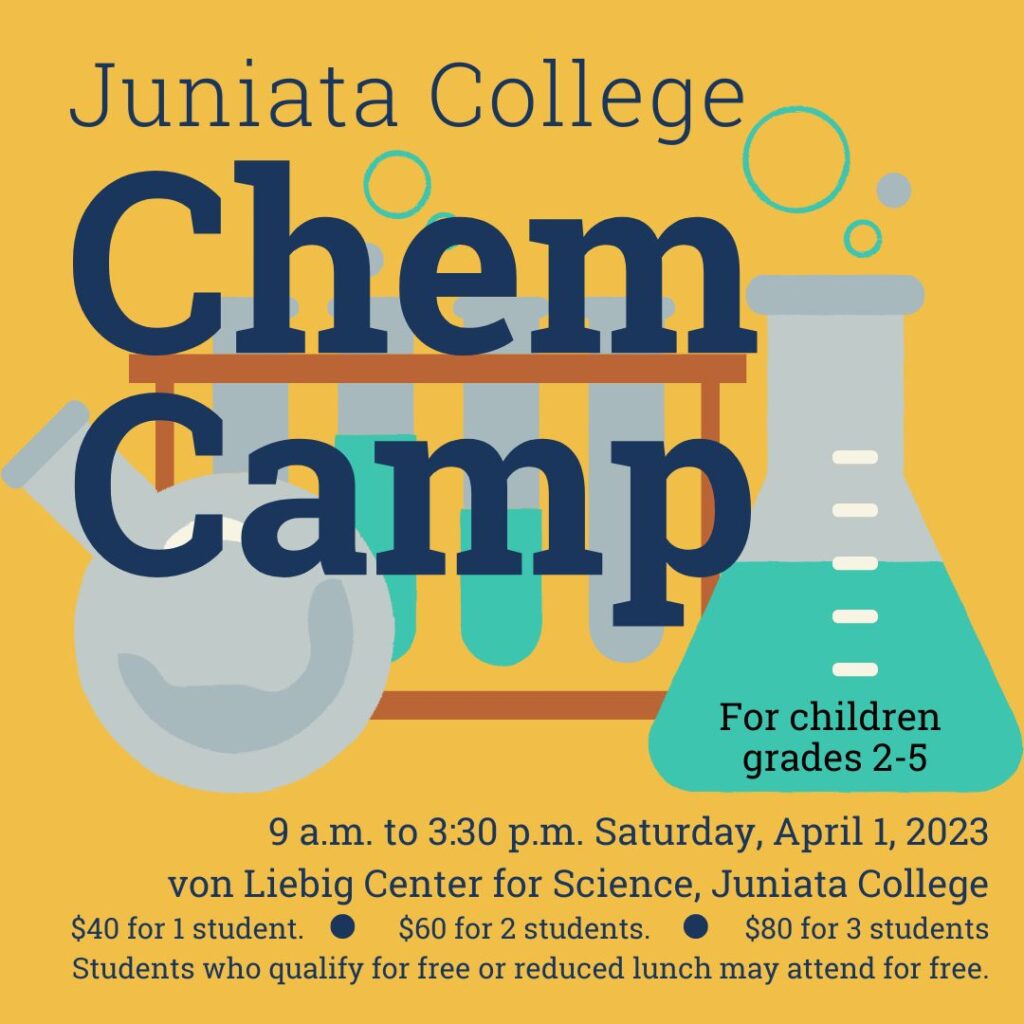As most Juniata College students would agree, we pride ourselves on hands-on learning opportunities. In order to learn, you have to practice the concepts yourself. Sure, you might need to watch someone perform a task or complete a problem so that you can understand the basic concepts, but eventually you will have to do it yourself.

With those ideas in mind, the Chemistry/Biochemistry Department decided to bring back Chem Camp. This camp is a one-day event where local 2nd – 5th graders are invited to campus to participate in science experiments. This year, I was the Chem Camp Coordinator. I worked with professors, staff, and students to make and deliver flyers to elementary schools, advertise the event online, get our volunteers fully cleared to work with the students, and so much more.
This year, our event was held on April 1st, 2023 (not an April fool’s prank) at 9:00 AM sharp. About 45 students were officially registered in the camp and spent the day practicing science with us. While they were here, the students completed five labs, each of which focused on a different branch of chemistry.
- Color changing slime, Physical chemistry
- Volcanoes, Geochemistry
- Chromatography flowers, Analytical chemistry
- Oil spills, Environmental chemistry
- Atomic models, Organic/Inorganic chemistry
To split up the day, we fed the students lunch and took a quick brain break to get some of their energy out. From there, it was back to lab where all the students were fully engaged, making academic messes and learning in a stress-free environment. Around 2:40 PM, we gathered all the students together and welcomed guardians to join us as the Chemistry/Biochemistry Club officers put on a final demonstration. They made us liquid nitrogen ice cream, mixed fire with giant gummy bars, and froze various objects. I think it’s safe to say that all of us were excited to watch the show and make predictions about the outcomes.
This is just one example of how students are able to get engaged with campus. Elementary schools don’t always have the time and resources to complete these experiments in the classroom, so we decided to provide an opportunity to do so. Encouraging youthful students to get involved with science now will help spark creativity, curiosity, and eventually a more diverse field.
